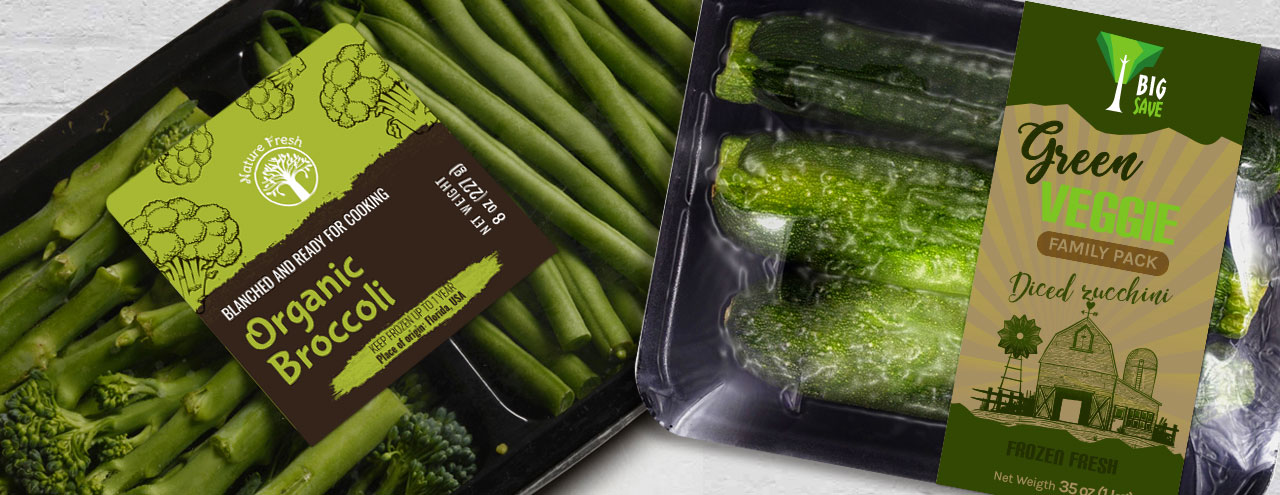Frozen vegetable companies enable consumers to enjoy any vitamin-rich veggies all year round, regardless of the climate and current season in their corner of the planet. Though some consumers are concerned that the quality of frozen vegetables is not the same as that of raw products, the concern is unjustified for properly handled veggies. “Properly” here means vegetables that have been:
- Picked at the peak of their ripeness
- Blanched to kill microorganisms on the surface of the product
- Frozen quickly after picking
- Packaged in moisture- and vapor-resistant aluminum foils, plastic film bags, rigid freezer containers, polyethylene plastic bag containers, or similar
It is important to know that vegetables need to be kept at constant temperature in the freezer; otherwise the fluctuation of the temperature may cause microbial deterioration of the product.
Labeling Advice to Frozen Vegetable Producers
The U.S. Food and Drug Administration administers the process of labeling most products on the US market, including frozen vegetable packs. Their labeling requirements are sometimes difficult to decipher, but it is advisable to comply with them because the penalties for non-compliance can be rigorous.
Some of the most important and basic rules of labeling frozen veggie products are the following:
- Place all mandatory information on the frontal part of the label.
- Mandatory information includes: statement of identity, net quantity, name and address of the producer or distributor, ingredients list, nutrition facts.
- Include other information that can be helpful to consumers, such as “best before” date, handling and storage instructions, defrosting instructions, maybe even some recipe suggestion or how long the vegetables can be kept in the freezer.
Food manufacturers can also add certain health claims to their frozen food labels according to specific regulations. For example, they can add the term “organic” if the claim is not false. Some manufacturers also like to give their potential customers a bit more information about the product, which is a good idea, considering the fact that consumers have an increasing interest in what’s written on food labels.
Hence, frozen veggies can be labeled “frozen fresh” if the food was frozen quickly after harvesting, or “quickly frozen” if the vegetables have been subjected to blast-freezing – the system that freezes food so quickly that no deterioration can happen.
Suggested Freezer Label Materials
The Freezer Labels team will ensure that your frozen vegetable products are labeled properly, which means that they will firmly adhere to the product in freezing conditions, regardless of whether the labels are applied before or after freezing.
There are two types of stickers you can order from us: blank freezer labels or custom printed freezer labels. Both blank and custom stickers can be supplied on rolls or sheets and made from any durable material: coated paper, vinyl, polypropylene, polyester, etc. We often use a combination of specialty paper with freezer grade adhesive, but we can work with a range of materials to accommodate your requirements and budget. We’ll also advise you on some things you need to consider before ordering your label so that the final result matches your company’s image and professionalism.


1 thought on “Frozen Vegetable Labels”
Comments are closed.